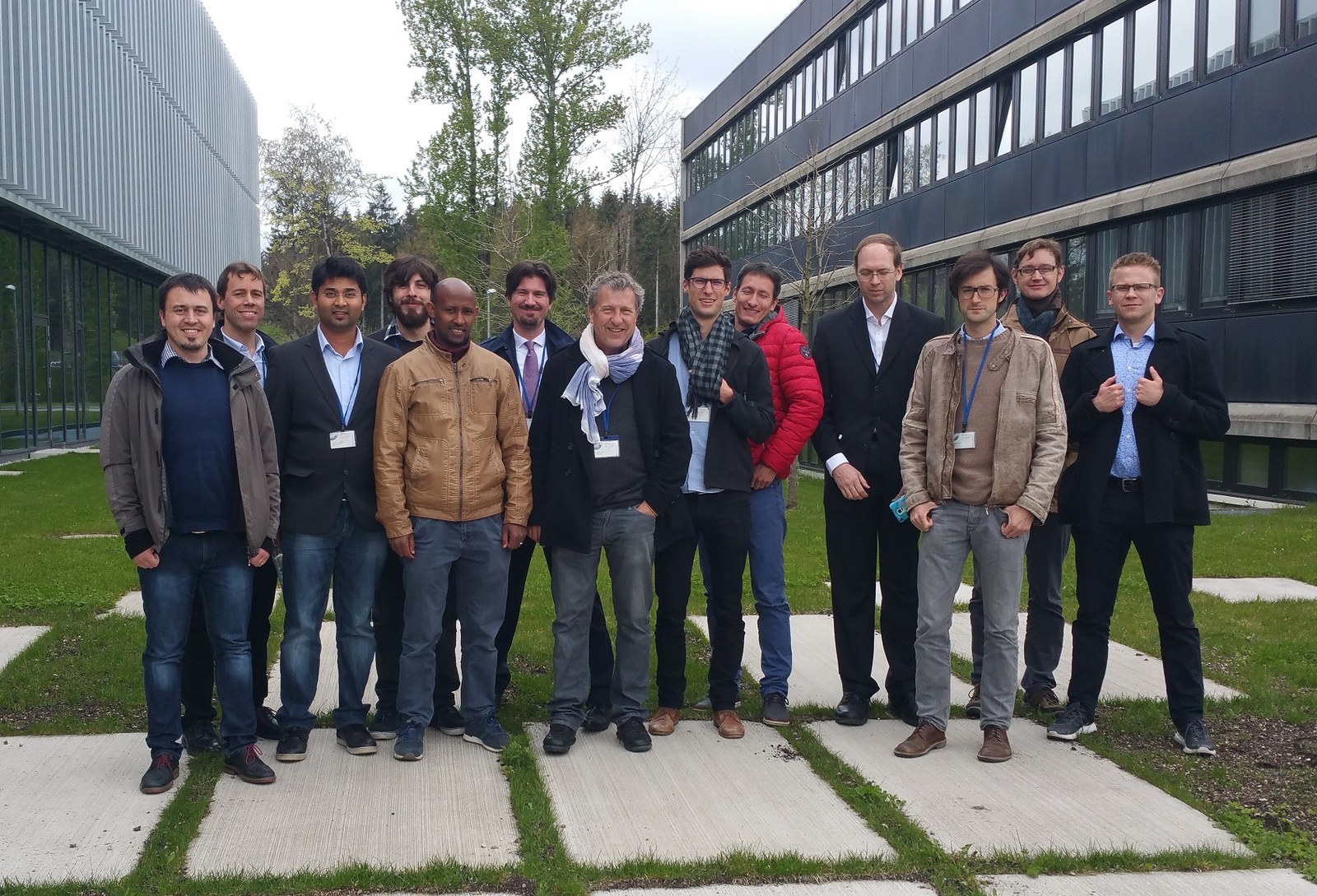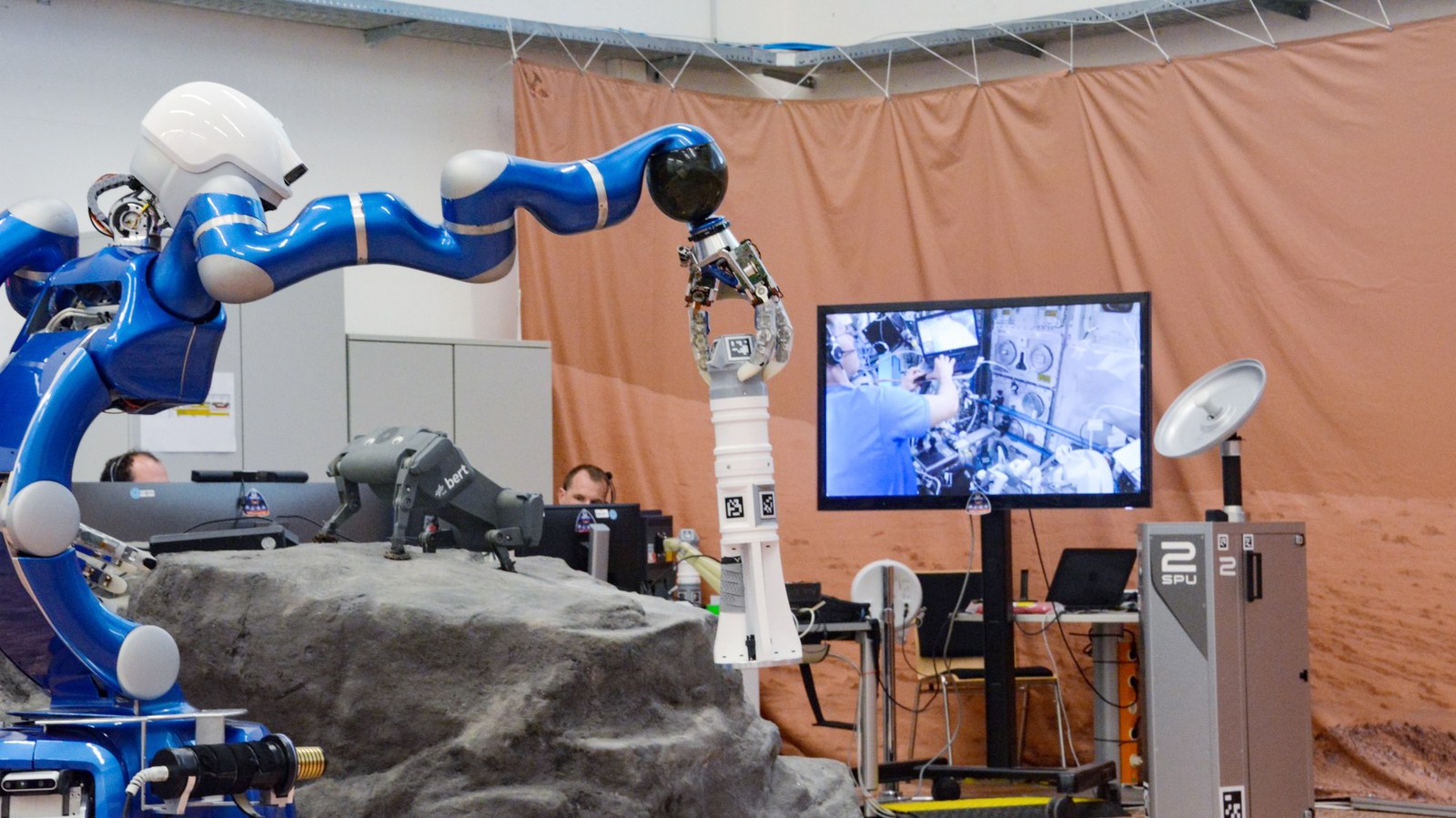Cognitive Robotics Department
Robotics is closely linked to the topic of artificial intelligence (AI). After all, robots are built to do something – and in order for them to know what to do and how, they need a certain intelligence. Every robot the institute develops should solve its tasks as efficiently and purposefully as possible. To this end, the department of Cognitive Robotics works on various core AI topics. These topics are relevant for many application domains – from space assistance to robots in care and factories of the future.

Achieving goals requires a robot to know what it is doing and why it is doing it. The first focus of the department is therefore to represent such knowledge explicitly, and make it accessible to the robot. This involves knowledge of the environment, as well as the goals and skills of the robot itself. It is important that this AI is explainable: the robot should be able to explain to the humans whom it cooperates with what it is doing and what goal it is pursuing. The research on this topic is pursued in the group Transferable Explainable Knowledge.

There are almost always several paths leading to a goal. The more skills a robot has, the more (diverse) paths it can take. And it also needs a diverse set of skills to be able to generate a path to the goal, even if errors occur and unforeseeable situations arise. The second focus of the department is therefore to enable robots to quickly acquire, learn and improve new skills through intuitive programming, demonstration and reinforcement learning. The research on this topic is pursued in the group Interactive Skill Learning.
A third focus is on the processing and interpretation of biological datastreams – such as an electromyogram and electrodermal reactions. The aim is to recognize and even anticipate people's intentions, so that they can intuitively operate various assistance devices, such as prostheses or wheelchairs. This research on this topic is conducted in the team Reenabling Systems.



